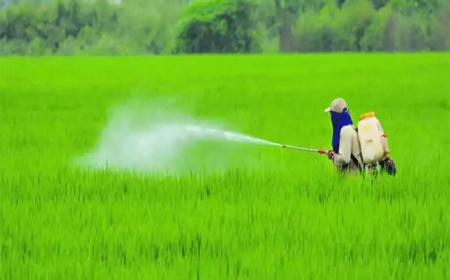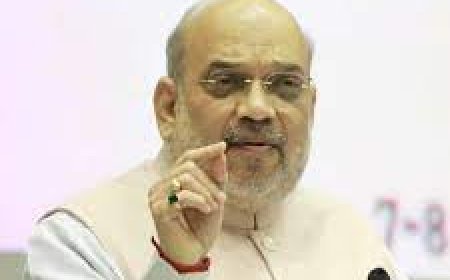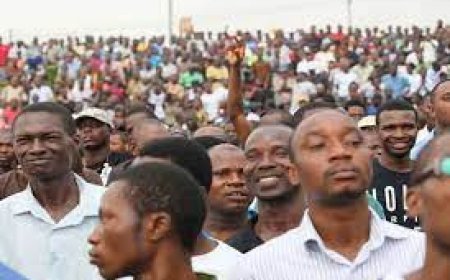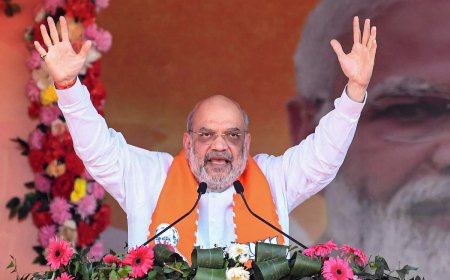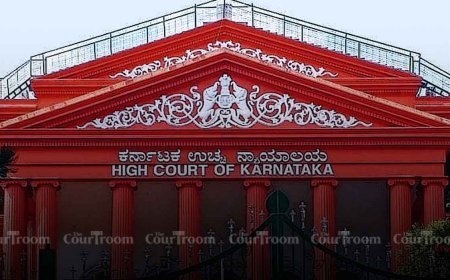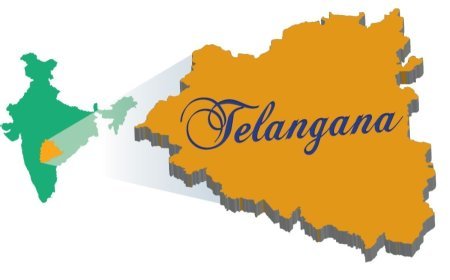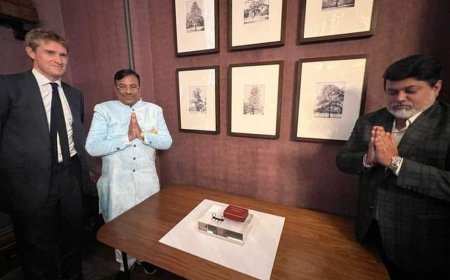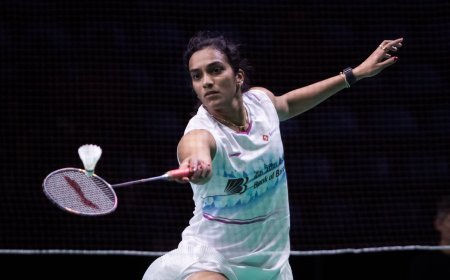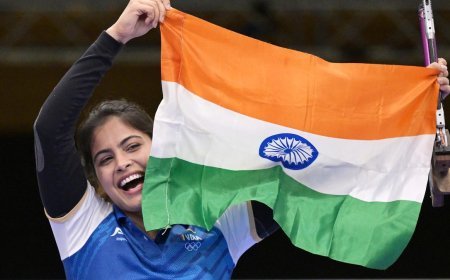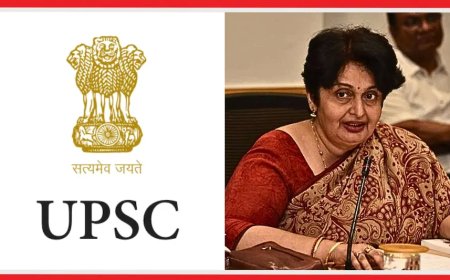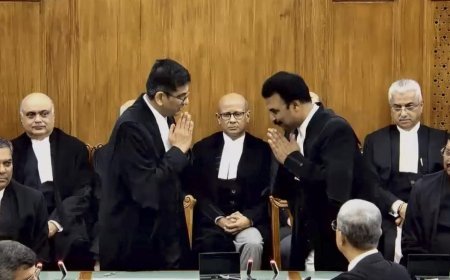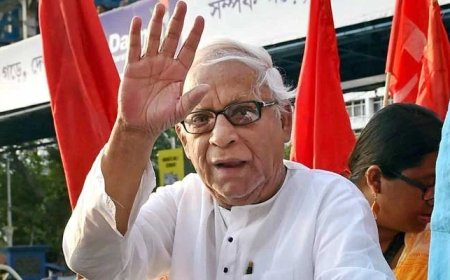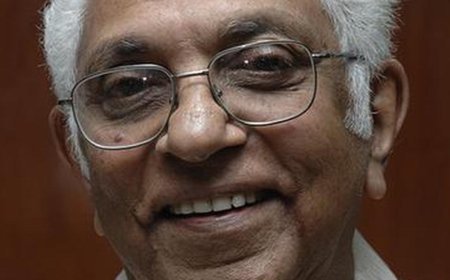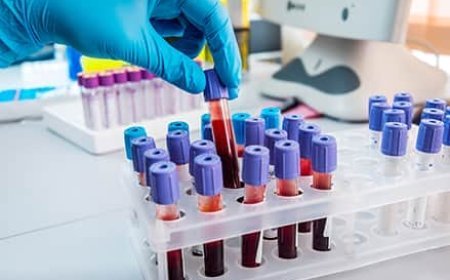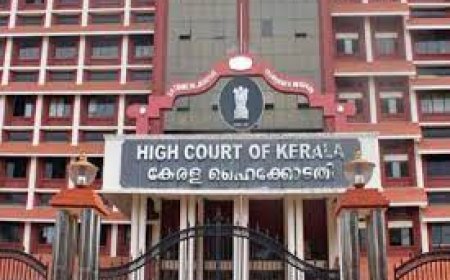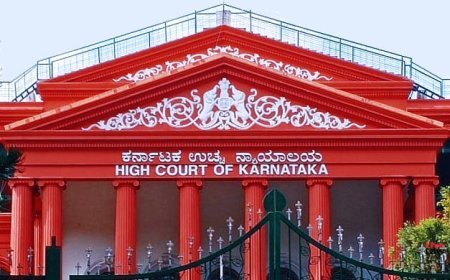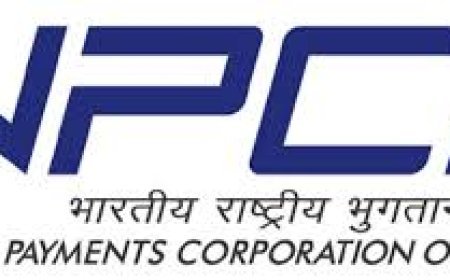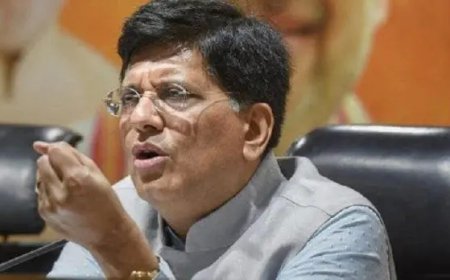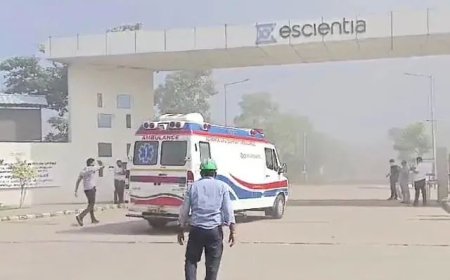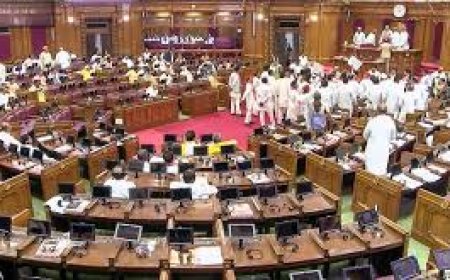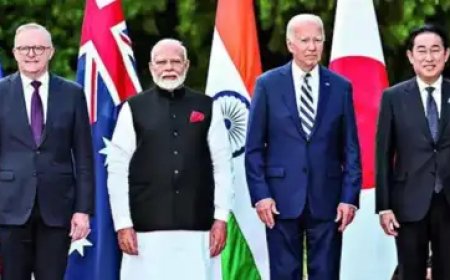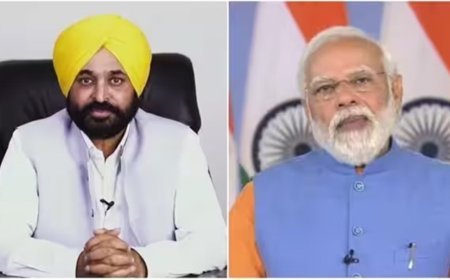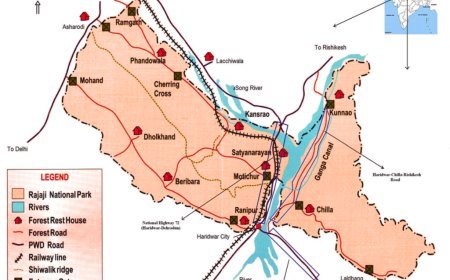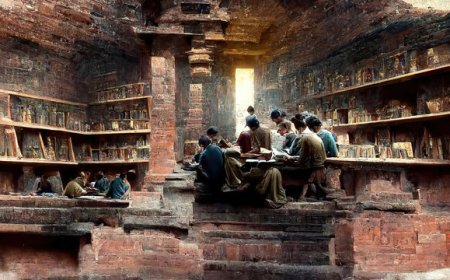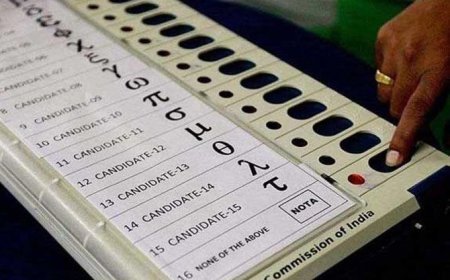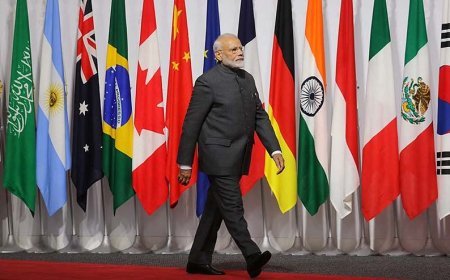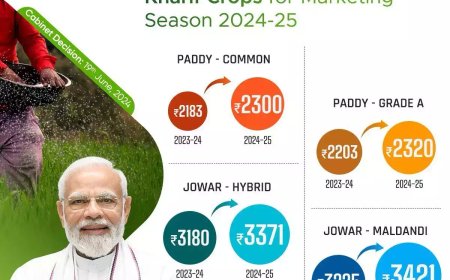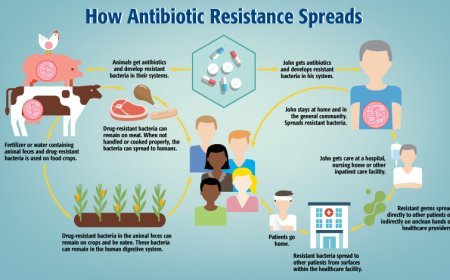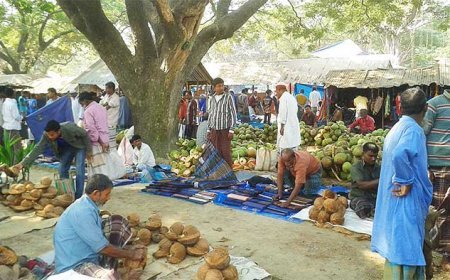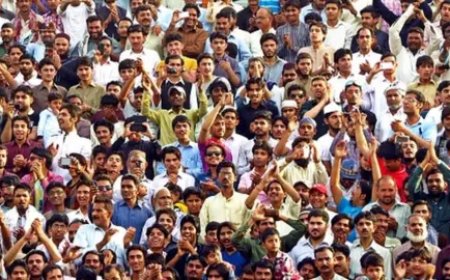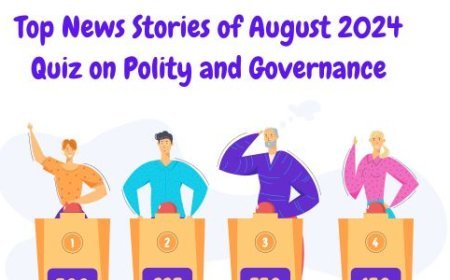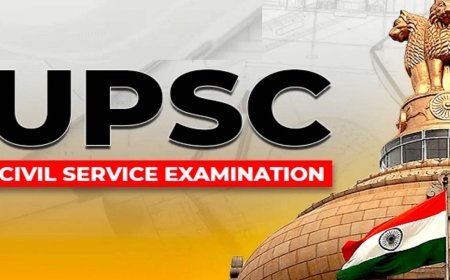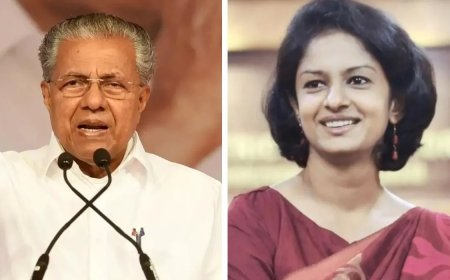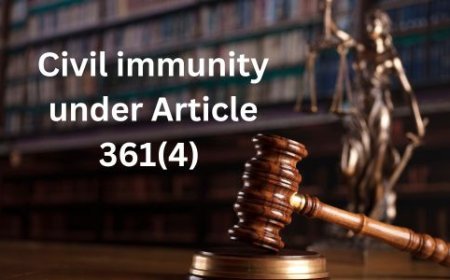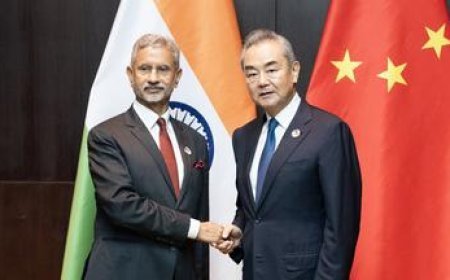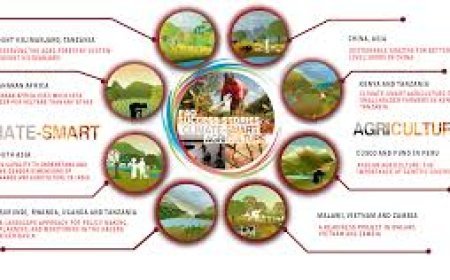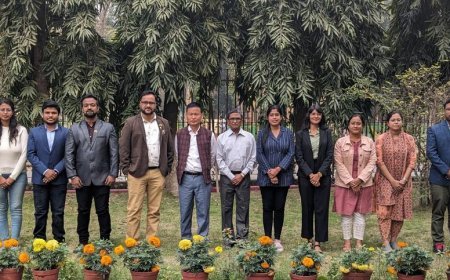June 2024: A Roundup of SOCIAL ISSUES News

Antimicrobial Resistance (AMR)
- Global Threat: Antimicrobial resistance (AMR) poses a significant global threat to human health, making infections harder to treat and increasing the risk of disease spread, severe illness, and death.
- Causes: Overuse and misuse of antibiotics in humans, animals, and agriculture contribute to the development of AMR. Lack of new antibiotics and the over-the-counter sale of antibiotics further exacerbate the problem.
- India's Response: India has implemented the National Action Plan on AMR, focusing on improving awareness, surveillance, infection prevention, and antimicrobial stewardship. Collaborative efforts with international organizations are crucial for combating AMR
Human Trafficking in India
- Prevalence: Human trafficking in India involves forced labor, sexual exploitation, and organ trafficking. Vulnerable populations, including women, children, and migrants, are the most affected.
- Factors: Poverty, lack of education, social marginalization, corruption, and weak law enforcement contribute to the persistence of human trafficking. Interstate and international trafficking networks operate across porous borders.
- Legal Framework: The Immoral Traffic (Prevention) Act, 1956, and other laws address trafficking, but enforcement remains a challenge. Recommendations include raising awareness, strengthening law enforcement, empowering vulnerable populations, and providing victim support services
Old Age People in India
- Financial Issues: Nearly 65% of elders struggle financially, with 32% having an annual income below ₹50,000. Only 29% receive financial support from family members, and many feel financially insecure.
- Healthcare and Social Security: Access to social security schemes is limited, with only 29% of elders benefiting. Over half face challenges with daily activities, and many suffer from non-communicable diseases like hypertension and diabetes. Government health facilities are commonly used.
- Caregiving and Abuse: Spouses and children are primary caregivers for bedridden elders. Elder abuse is reported by 7% of respondents, with no significant variation by gender or age. Digital literacy is low among the elderly, particularly those over 80
Kerala Migration Survey
- Rising Student Migration: The number of students migrating from Kerala has doubled from 2018 to 2023, indicating a significant demographic shift.
- Returning Emigrants: An estimated 1.8 million emigrants returned to Kerala in 2023, up from 1.2 million in 2018, largely due to pandemic disruptions and stricter immigration policies.
- Remittances and Female Migration: Remittances to Kerala increased significantly post-pandemic. The proportion of female emigrants rose from 15.8% to 19.1%, with a shift from GCC countries to Europe and other Western nations. Muslims lead in emigration, followed by Hindus and Christians
Refugee Crisis in India
- Challenges: India faces challenges in managing refugees and asylum seekers from neighboring countries. The absence of a national refugee law complicates the legal status and rights of refugees.
- Government Response: India provides humanitarian assistance and basic services to refugees but lacks a formal legal framework. Collaboration with international organizations like UNHCR is essential for addressing refugee issues.
- Policy Recommendations: Developing a comprehensive national refugee policy, improving coordination with international agencies, and ensuring the protection of refugee rights are critical for managing the refugee crisis
Women in Leadership Roles in India
- Current Status: Women hold only 13.6% of seats in the Lok Sabha, indicating a significant gender disparity in political representation. Gender disparities persist across various sectors.
- Initiatives and Challenges: Initiatives like the Women's Reservation Bill aim to increase women's representation in leadership roles. Challenges include societal norms, gender biases, and lack of support systems.
- Recommendations: Encouraging women's participation in politics, providing mentorship programs, and implementing policies to support work-life balance can help address gender disparities in leadership roles
A Playbook to Handle Gestational Diabetes Better
- Context:
- Gestational diabetes mellitus (GDM), characterized by hyperglycemia first diagnosed during pregnancy, affects approximately 14% of pregnancies globally. A new series published in The Lancet emphasizes the need for a holistic, life-course approach to managing GDM.
- Risk Factors and Rising Prevalence:
- Major risk factors include age, family history of diabetes, and high BMI.
- The rising incidence of GDM is linked to the broader crisis of non-communicable diseases like obesity and cardiometabolic disorders among women of childbearing age.
- Complications:
- Increased risk of pregnancy complications and long-term impacts on mothers and babies.
- Up to 31% of type 2 diabetes cases in parous women are attributable to GDM.
- Babies born to mothers with GDM have an increased risk of type 2 diabetes, obesity, cardiovascular diseases, and neurodevelopmental disorders.
- Barriers to Appropriate Care:
- Insufficient resources, isolation of secondary maternal care from primary care, and healthcare prioritization issues.
- Pathophysiology and Screening:
- Understanding glycemic dysregulation's impact on pregnancy outcomes and future health is crucial.
- Early and universal screening of pregnant women is recommended.
- Transformative Approaches:
- A shift from a pregnancy-focused approach to a long-term perspective on GDM.
- Summary:
- Addressing GDM requires a comprehensive strategy involving early screening, appropriate management, and a focus on both maternal and child health to mitigate long-term risks and improve outcomes【71:0†source】.
Caste Away
- Context:
- The Justice K. Chandru Committee was formed in response to a violent assault on two Scheduled Caste (SC) siblings by dominant community schoolmates in Nanguneri, Tamil Nadu.
- Recommendations to Prohibit Caste Markers:
- Prohibition of wearing colored wristbands, rings, or forehead marks (tilaka) indicating caste identity.
- Ban on bicycles with caste references and school names with caste appellations.
- Maintaining caste confidentiality of pupils.
- Enhancing Social Justice in Education:
- Appointment of a Social Justice Monitoring Committee comprising academicians and social activists.
- Inclusion of topics on social justice, equality, and non-discrimination in the curriculum.
- Revising B.Ed and Diploma in Elementary Education syllabuses to ensure orientation towards inclusivity.
- Controversial Recommendations and Practical Concerns:
- Centralizing noon meal kitchens to mask the caste identity of cooks is impractical and could pose distribution challenges.
- Suggesting a uniformed Social Justice Students Force is viewed with caution, as existing setups like NCC, Scouts, and Guides are deemed sufficient.
- Broader Context and Political Challenges:
- Discrimination often starts in children's habitats, marked with caste-identifiable colors.
- The electoral success of caste-based political parties exacerbates the issue.
- Summary:
- Efforts to end caste discrimination in Tamil Nadu schools must go beyond banning caste markers. Comprehensive reforms in education, political will, and grassroots transformation are crucial for fostering social harmony and addressing deeply entrenched caste-based prejudices
The NEET Sheeters
- Context:
- Protests erupted across India due to unfair mark distribution in the NEET exam, affecting students’ chances of getting into government medical colleges.
- Over 2.3 million students appeared for NEET, with 67 achieving full marks, leading to confusion and unexpected rank changes for many.
- Controversial Grace Marks and Legal Action:
- The National Testing Agency (NTA) revealed that “grace marks” were given to 1,563 candidates due to exam delays and a textbook error, prompting demands for a re-exam.
- Public interest litigations (PILs) were filed in the Supreme Court, which ordered the cancellation of compensatory marks and an option for affected students to retake the exam.
- Protests and Public Outcry:
- Protests spread from Banaras Hindu University to Delhi’s Jantar Mantar, uniting students and parents in demanding a fair re-exam.
- Students from various universities and political affiliations joined the protests, highlighting the widespread discontent with the NTA’s handling of the exam.
- Allegations of Lack of Transparency and Cheating:
- The number of candidates achieving full marks raised suspicions, with calls for a detailed analysis of top candidates’ exam centres.
- Summary:
- The controversy surrounding NEET’s mark distribution underscores the need for transparency and fairness in the examination process. Addressing these issues is crucial for maintaining trust in the education system and ensuring equal opportunities for all students.
Residents Oppose Allotment of Flat under CM Scheme to a Muslim Woman in Gujarat
- Context:
- A controversy in Vadodara, Gujarat, over the allotment of a flat to a Muslim woman under the state government’s Mukhyamantri Awas Yojana has highlighted the deep-seated issue of housing segregation in the state.
- Background and Context:
- The flat in question is part of Motnath Residency, a housing project built by the Vadodara Municipal Corporation intended for lower-income groups.
- The allotment was done through a lottery system, and the Muslim woman who was allotted the flat has faced continuous opposition from other residents.
- Protest Details:
- Residents argue that the housing complex is meant exclusively for Hindus and have threatened to escalate their protests to Gandhinagar and Delhi if the allotment is not cancelled.
- Protesters cite the Disturbed Areas Act, claiming it prohibits the sale of property between different religious communities without approval from the District Collector.
- Official Response:
- Municipal Commissioner Dilip Rana stated that the situation is under review, and a decision will be taken after examining all relevant documents to determine if the complex falls under the Disturbed Areas Act.
- Residents believe the allotment violates the Act and could disturb the communal harmony they perceive in their area.
- Issues:
- This incident underscores the near-complete housing segregation in Gujarat, where Muslims often face difficulty in leasing or purchasing homes in predominantly Hindu areas.
- The Disturbed Areas Act, while intended to prevent distress sales in communally sensitive areas, is often cited in ways that reinforce segregation.
- Summary:
- The controversy over the allotment of a flat to a Muslim woman in Vadodara highlights the persistent issue of housing segregation in Gujarat. Addressing this issue requires a balanced approach that ensures fair treatment for all residents while maintaining communal harmony
The Delicate Balancing of Healthcare Costs
- Context:
- Cost considerations are increasingly influential in Indian healthcare, impacting service delivery and patient care. Equitable and sustainable healthcare policies are urgently needed due to rising health disparities and uneven access to medical services.
- Role of Private Hospitals in Innovation:
- Private hospitals, particularly those accredited by Joint Commission International (JCI) and NABH (National Accreditation Board for Hospitals), serve as both specialized care centers and innovation hubs.
- These hospitals invest significantly in infrastructure and advanced technologies, enhancing patient outcomes and broadening access through telemedicine and remote care integration.
- Challenges and Considerations in Pricing Policies:
- Imposing uniform price caps may jeopardize healthcare quality and impede innovation, as seen in studies indicating increased patient dissatisfaction.
- Value-based pricing, reflecting health outcomes over service volume, presents a potential solution.
- Economists recommend dynamic pricing models, like Thailand’s tiered pricing system, which consider medical complexity and patient financial status to balance cost and care effectively.
- Legal and Regulatory Reforms:
- Effective management of healthcare costs requires legislative reform tailored to local demographic and economic conditions.
- States such as Rajasthan and Tamil Nadu advocate for robust legal frameworks to address gaps in rate fixation provisions and support high-quality care.
- Technological Innovations in Healthcare:
- Technology, including artificial intelligence and electronic health records, revolutionizes healthcare by improving diagnostics and care coordination.
- Telemedicine initiatives, such as those in Karnataka, demonstrate cost-effectiveness and accessibility enhancements, especially in remote areas.
- Mobile health apps and wearable devices play a crucial role in managing chronic conditions outside hospitals, reducing costs and improving outcomes.
- Stakeholder Engagement and Flexible Pricing Strategies:
- Healthcare professionals across India advocate for flexible pricing strategies that reflect the complexities of medical procedures and patient-care requirements.
- Engaging all stakeholders, including private healthcare providers, is essential for crafting effective and sustainable policies.
- Summary:
- The delicate balance of healthcare costs requires a comprehensive approach that includes innovative pricing models, legislative reforms, and technological advancements. Ensuring equitable and sustainable healthcare access is crucial for improving patient outcomes and maintaining system integrity.
India Needs to Close the Gender Gap in Education and Politics
- Context:
- The global gender gap stands at 68.5% closed in 2024, with full gender parity projected to take 134 years. India has slipped to rank 129 out of 146 countries, closing 64.1% of its gender gap.
- Areas Needing Improvement:
- Education:
- The gender gap in literacy is 17.2 percentage points, with India ranked 124th.
- Preventing girls from dropping out of higher education and providing job skills are crucial measures.
- Political Empowerment:
- Women’s representation in Parliament is low, with only 13.6% of members being women.
- The Women’s Reservation Bill, 2023, aims to reserve one-third of seats in the Lok Sabha and State Legislative Assemblies for women.
- Economic Participation:
- Despite slight improvements, India needs to increase its labor force participation rate to match its 2012 score.
- Measures include ensuring workplace safety and supporting women in maintaining jobs after marriage.
- Call to Action:
- The World Economic Forum (WEF) Managing Director urges governments to create conditions for businesses and civil society to collaborate in making gender parity an economic imperative.
- Summary:
- India’s gender gap has widened, highlighting the need for significant improvements in education, political representation, and economic participation. Bridging these gaps is crucial for achieving gender parity and promoting economic growth.
Prolonged Exposure to Coal Mining Causes Respiratory, Skin Diseases in Workers: Study
- Context:
- Prolonged exposure to pollutants from coal mining has led to widespread respiratory and skin diseases among mine workers and inhabitants in six coal mining districts in India.
- Survey Overview:
- Regions surveyed include Koriya and Raigarh (Chhattisgarh), Dhanbad and Ramgarh (Jharkhand), and Angul and Jajpur (Odisha).
- The survey included 1,200 households across these districts.
- Health issues reported include chronic bronchitis, asthma, eczema, dermatitis, and fungal infections.
- Health Impacts:
- 65% of participants reported chronic respiratory conditions such as bronchitis and asthma.
- Significant occurrences of eczema, dermatitis, and fungal infections were observed.
- Summary:
- The survey highlights the severe health impacts of prolonged exposure to pollutants from coal mining. Addressing these health issues requires comprehensive measures to improve working conditions and ensure access to healthcare for affected communities
What's Your Reaction?







